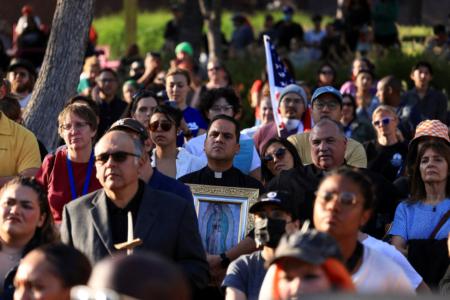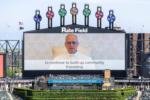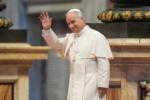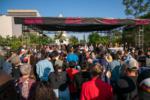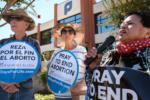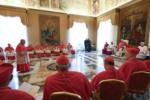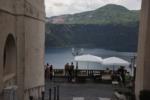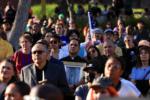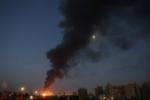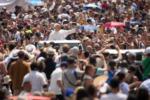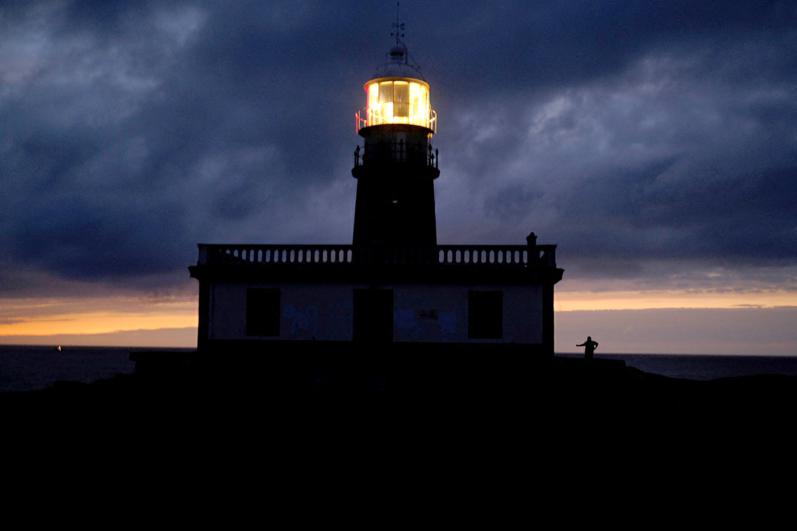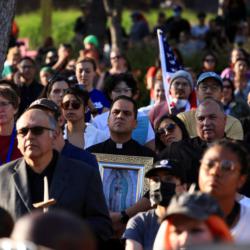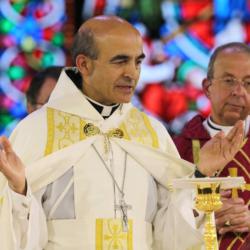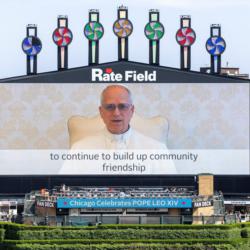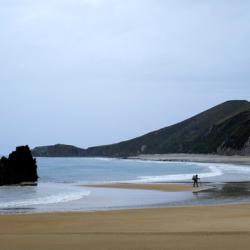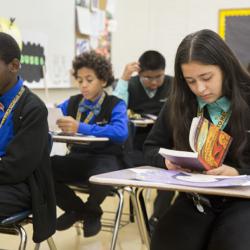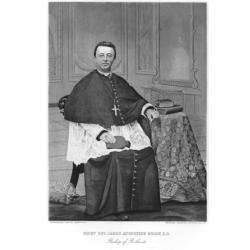Reading Galicia: A pilgrim, a professor, and the press
A few days ago, with a sunny, cool morning to spare in Ribadeo, I wandered the streets and struck up a conversation with a retired professor in a well-used cardigan, walking along in no hurry. It was Saturday. I asked him what he thought about the new pope.
He directed me to a "tienda," where they sold "prensas" and "revistas," newspapers and magazines. Though he doesn't buy them himself, he shrugged, "I just read the ones in the cafes."
With some counsel from the clerk, I bought the full spectrum of political press: El Pais (liberal), El Mundo (moderate), and ABC (conservative), or "mucho conservativo," she said, looking down at the counter and glancing around the store to see if anyone else was listening.
I settled into a café with my "crudo Espanol" and a photo translation app. El Pais had an interesting review of a novel that reconstructs the history and lost memory of Spain through the fictional point of view of an insider in the Franco regime. Franco's rule ended in the late 70s, but it seems only now are more critical and creative accounts of that period appearing in print.
El Mundo seemed to be drumming up attention over Pedro Sanchez, Spain's president, not attending the pope's inaugural Mass the following day, while U.S. Vice President JD Vance was planning to go. A counterpoint argued that Spain's healthy separation of church and state means religious affairs are better left to their constitutional monarchy. Quite a change from the tight relationship between Franco and the Catholic Church 50 years ago.
ABC, sometimes referred to as the Catholic paper, had an entire interior section dedicated to Robert Francis Prevost, now Pope Leo XIV. The gist of the "articulos" conveyed reverence, hope, and support. It cited his willingness to give voice to the marginalized and less fortunate, as well as his willingness to give audience to Opus Dei, a controversial Catholic organization. To this paper, he appears to be someone who can restore confidence in the church, whether being elevated by unattainable expectations or simply given a respectful introduction remains to be seen.
Last week I walked with some French, Indonesian, Portuguese, a New Zealander and another Austrian. None claimed to be here for religious reasons, though the Austrian invited me to stop and meditate for 20 minutes. He's a Tibetan Buddhist and former chef whose addiction to the stress of the kitchen is an ongoing struggle.
"What is your name? Are you a Catholic?"
"I'm Mark. Yes, I'm Catholic."
"I was born Catholic," Horst said, "like most of Austria. But I needed something that could address my wandering Bewusstsein -- consciousness." The conversation went on like that. I imagine Camino conversations back in the Middle Ages
Horst gave up a life as a celebrity chef to help others. He's a vocal supporter of immigrant integration in Austria and volunteers as a career coach for disadvantaged youth. His aging father is in the hospital, but the prognosis is hopeful.
We visited the Monastery at Sobrado dos Monxes, opened for monk business in 1165 -- an astounding site. The entire compound has survived plagues, sieges, a 19th-century shutdown, Templar and military occupation, bankruptcy, and now a revival as a World Heritage Site. The main church was originally Roman, rebuilt in the Baroque style, and the current renovation is underway. It's like standing in an arena of rough white granite. After seeing so many finished places of worship, the sheer durability of this one is what stuns. This immense and barren space echoes not only centuries of Catholicism, but also the long tradition of humans pulling stone from the ground to build altars to the sky -- reminders of our capabilities and our relative insignificance.
There are more pilgrims in the streets now, arriving from various routes, all converging on Santiago in about 40 kilometers. On the road, I met a father and son from Barcelona -- both named Domingo. There are seven generations of Domingos. I asked what they thought of the "nuevo Papa." Like many older folks, there was a shrug, "We'll see."
We're all staying at the seminary in Santiago after picking up our Compostelas and agreed to attend the Pilgrim's Mass with the enormous swinging Botafumeiro. Two more days on the road.
Today, in Arzua, the Camino Norte joined the Camino Frances. I was drawn to a café, where I ducked in out of a downpour two years ago. I sat at the same table and had the same Galician potato soup with ham and lentils.
I've been here before. And I'll probably be here again.
Buen Camino.
